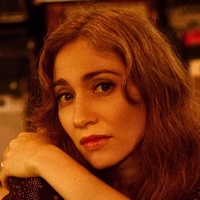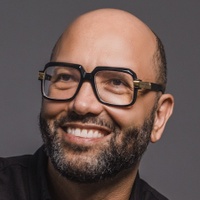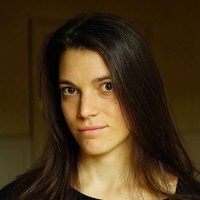
On being surprised by what you've made
Musician Regina Spektor discusses the malleability of songs, the expansiveness of process, and finding home in your work and community.How do you approach writing long songs—your latest album has one that runs nine minutes—that have so many movements within them?
There have been many times where I get really surprised, where a song doesn’t really feel that long to me. And then when I find out the running time of it, I’m like, “Oh, that’s longer than I thought.” And some songs feel really long, and they’re shorter than I realized. I remember on the last record, there’s a song called “Sellers of Flowers,” [which is four minutes,] and in my imagination it felt like it was as long as something like [the nine-minute] “Spacetime Fairytale.”
As soon as you start interacting with any kind of art, your sense of time sort of changes, because each thing tunes you to itself in a way; you start thinking all these thoughts, and they take you on a journey, maybe free association or a very specific memory. There are some songs where they’ll just flip by, and other things will send you on this very long experience. It’s [like] when you take a nap: You can maybe take a very short nap, but you have a huge dream or something, and it’s very vivid and grand, and the sort of “what” it is doesn’t really seem to correspond to the couple of minutes that it took place during.
When I write, I’m not aware in any kind of way of like, “Oh, this is a long song,” or, “This is movements.” If anything, I’m truly in awe of people who work in larger, scaled projects, someone who does sit down and write a symphony or an opera or a novel. I tend to live in a world of miniatures, so even my biggest work feels like a blink to me. It’s just a tiny little thing that comes and goes and floats away.
I ended up for the first time performing [“Spacetime Fairytale”] when I was on Broadway: I had this special little residency. We made it this special centerpiece of the whole show because it just became so epic. We had all this room to lean into the theatrical aspects of it.
Do you know Maria Popova? She’s just an amazing woman—she’s a writer, journalist kind of human, art human. She used to have a thing called Brain Pickings. She loves poetry and it’s her passion, and so is science and space. And she does these performances, or they’re concerts, they’re poetry readings, they’re sort of a mix of things. They’re science gatherings, and they’re called “Universe in Verse.” And she invited me to read a poem and play some music at this “Universe in Verse” event at Pioneer Works.
I just got so excited. I was like, “I’m going to write a science song about the universe and time.” I got it in my head that I was going to be able to do it, and I had these really fun conversations with a friend of mine who has studied a lot about time. I so wanted to do [the song] for the [Pioneer Works] show and I began writing it, but by the time it rolled around, I hadn’t been able to play through it even once without messing up 50 different ways [laughs]. And I also just couldn’t finish it in time. But that’s kind of where that little guy came from—or big guy, I don’t know.
It’s funny you mentioned things being vivid and grand, and then you mentioned your residency—I was going to bring that up. I was at one of the shows, and I know that quite a while ago, you were working on Broadway music composition [for the unproduced musical “Beauty”]. What do you value in and take from Broadway when you’re writing?
My relationship with Broadway is really interesting because I discovered musicals really late, and the ones that I did discover were all movie musicals, because my family—classical music was such a part of our life. Any time we basically had any financial ability to go to anything, it would always be classical concerts. It would be the opera, it would be Carnegie Hall, it would be Avery Fisher Hall. It was always recital and orchestral works. And my family never really went to see anything on Broadway at all. Broadway sort of existed in the same city as us, but it was just this thing that I knew about. But I would, here and there, see films, especially on PBS—they would show “Singin’ in the Rain” or “Mary Poppins” or just all of these movie musicals—and those really made a huge impression on me, as far as I loved the songs in them and the singing and the dancing and the tap dancing especially.
[Years ago,] I got invited to participate in a Broadway show that was being written. Somebody was writing the lyrics and I was just asked to write the music. And I didn’t really know myself well enough, I guess, to know that was an impossibility for me.
When we began talking, you sort of said, some of this is craft questions. I know that somewhere in [my songwriting], there’s got to be some craft in me: It’s got to be in there, but it’s not at the forefront. So much of it is, “this feels right,” “this doesn’t feel right,” “this feels right coming out of my mouth,” “this sounds right to my ear,” “this sounds false,” or “this sounds really new,” or “this sounds interesting,” or “this sounds really ugly, but I’m kind of interested in it.”
I love writing the words. Part of the music, for me, comes from the words, and I didn’t realize that until [working on the Broadway show]. I learned so much, I loved it. I loved being in a room full of Broadway people and getting the inside glimpse. And I loved that camaraderie of: We’re putting on a show and we’re creating things, and we’re adjusting things on the fly and we’re changing everything so quickly.
I wrote so much music for it. I probably wrote 30 songs at least, but for the most part—except for ones where I really got to put in a bunch of my words—they didn’t really ever feel mine. I walked away from that being like, “If I ever do this again, I will have to really create something the same way that I create my songs.” Just that kind of bigger, blown-up version. And then I guess in a tiny, tiny way of the Broadway residency, as far as just getting to experience snow falling, or huge fires blazing on screens, or getting to play and have dancers, and get to feel that real time and how fun it is to accompany dancers with a song,
I think [the experience] gave me the taste for that, and to try to think of some way that maybe I can contribute in my own way to it, but that’s like a coin in the fountain: It’s just going to stay there for a while because it’s such a huge undertaking.
Something I talk to people about a lot is how hard it is to put something down and be done. How do you know when you’ve finished writing a song, or even finished with an album?
They feel very, very different to finish. With a song, I end up playing it so, so, so much and shifting things while I’m writing so, so much. And then I play it and play it and play it, and through that process, I write it. Over and over and over—almost like when they’re polishing a stone and it’s just being thrown around inside that tumbler. The song rolls over, and it starts out as this very malleable thing. It’s the strangest experience where you start with absolutely arbitrary things—or so you think—and you’re making them up, apparently, but as you go, and through the process of repetition, things become so apparent to you.
Of course, [the lyric is] a table and not the table. And it’s so clear. And if somebody says “the table,” or if you say “the table” and it’s “a table,” in that moment, it’s almost offensively wrong. And every tiny word starts to become apparent, and where you take the breath and these moments of how time maybe slows down or speeds up. For example, a lot of the time—especially if you want to play with other musicians or if you want to, let’s say, put an orchestral arrangement on something that you’re working on—you need to have some kind of a map, you need to have a grid. And a lot of people, let’s say, play to click, and they’ll figure out the correct tempo, first song and the place where it feels the most comfortable, and then they record to that.
But for whatever reason, even my songs that have a real groove to them, you have to really feel the beat. Even dancing songs, they’re all tempo-mapped, so that means that as I’m writing it, I must feel that at a certain point, the time has to slow down or has to speed up or has to open in this tiny place. I just feel I lose the song if certain moments are not expanded or contracted.
And I think that the same thing happens when you’re writing a song. You figure out how to make a little bit more room for this word or how to go through this so that it feels just right, this tiny little sentence feels just right. And then this thing that was so malleable, it hardens. And for me, it hardens pretty seriously. It almost becomes really hard to alter, actually. And sometimes I’ve had situations where I’ll want to even change the key of it and it won’t feel right. And I’m like [laughs], “Damn, now I have to sing so high,” but the Jell-O sort of sets in this place and then it’s set. And then that feels like the song is done.
It also becomes apparent what’s right and what’s not right for that production. It’s almost like color relativity theory, where if you put this green, then that purple’s going to look really crazy; you put this yellow, then that purple’s going to look [bad]. The whole thing becomes very arbitrary, because as soon as you start putting these colors on—the colors being this kind of a sound or that kind of a sound—it eliminates all these other possibilities.
The same way that if a house exists for 400 years, the bones of the room are the bones of the room. And everybody’s going to paint it a different color and put different furniture in it and style it completely differently and live very differently in it. And so to me, that 400-year room is the song, and then the production is the families that travel through it and live through it, through generations, and all these different people who bring their production and sort of put it upon it.
I finish the record only when I’m very, very happy with where I ended up, but I can’t ever say, “Oh, this is the perfect thing for this song.” It’ll be the creative thing for this song or the interesting thing for this song or the thing that I love for this song, but it’s not the one and only thing. And I do think that there are people out there who write and they can hear exactly the production and they probably do walk away being like, “This is the perfect, one and only way to produce this song.” I’m just not that.
I wanted to ask you about the album’s name: Home, before and after. For you, what fosters a sense of home?
[sighs lightly] Maybe that sigh, just the meaning of it. I just deeply exhaled and I think I dropped my shoulders by an inch. I always have these titles in my head way, way, way before I even know what’s going to be on the record or what the record is. And I had this in my mind long before COVID, long before a tremendous amount of things went on in these last years. What’s interesting is I myself keep growing into it. And I think that COVID life definitely made everybody rethink home, and there’s definitely been a very serious before and after—I didn’t mean for it to be so literal, almost.
If I was to kind of lay my own self on my own inner-world therapy couch and ask myself: What is it to you? I think that having gone through immigration so early in my life and having had basically left home and then gone on the road with my parents, and definitely while going through this very travely immigration experience where we didn’t just go actually from one country to another, but we went to Austria first and then we lived there and waited, and then we were allowed to move onwards to Italy and then we lived indefinitely there, and then we waited and then we got to America. And then we were moving around there and really had these kind of few seminal years of wandering. I think that as much as physical things really mean a lot to me—I’m very attached to tokens and talismans, and the things that I can touch and love, and photographs and tangible things.
I love the physical world. I’m not so zen that I’m just like, “I don’t need anything. I just want to lay my head down, and I don’t care where I sleep.” I love having any kind of permanent structures and things in my life. But in another way, I think I did learn very early on that a lot of it is what you carry inside and who you have around. To me, still today, I think as much as I love the comfort of home, your actual home is the people in your life.




